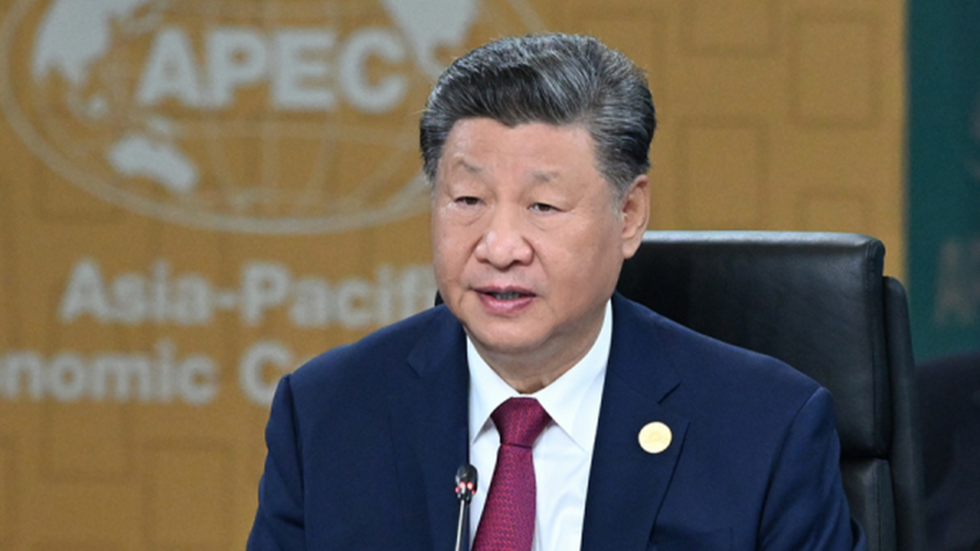During a recent meeting at the Asia-Pacific Economic Cooperation (APEC) forum in Lima, Peru, Chinese President Xi Jinping articulated four critical boundaries that he believes the United States must respect to foster a stable and healthy relationship between the two nations. Xi emphasized that it is in the interest of both countries to cultivate a “steady, healthy, and sustainable” relationship, while cautioned against attempts by the U.S. to hinder China’s economic progress. He firmly stated that both nations, as significant global powers, should refrain from trying to reshape one another based on their own desires or from asserting dominance through strength. He also underscored that no country can deprive another of its legitimate right to development without facing serious repercussions. The growing tensions between the two economies have led Xi to assert that engaging in a “new Cold War” is neither viable nor wise. He maintained that efforts to contain China are deemed unacceptable and are destined to fail.
Xi Jinping’s insistence on treating both nations as equals reflects the intricate balance needed to navigate the complexities of U.S.-China relations. He highlighted that while divergences between major powers are to be expected, there are essential core interests which must be respected. According to Xi, the question of Taiwan, along with issues related to democracy, human rights, China’s unique path and system, and its right to development, constitute fundamental areas of concern or “red lines” for China that should remain unchallenged. These parameters serve as critical guardrails intended to guide interactions between the two world powers. To achieve meaningful progress, Xi advocated for a partnership characterized by mutual respect and cooperation, in contrast to “vicious competition.”
The U.S. follows a One-China policy, which officially recognizes Taiwan as part of China while maintaining informal relationships with the self-governing island. Washington’s provision of arms and military support to Taiwan raises significant concerns in Beijing, as this is viewed as a breach of its sovereignty. This relationship between the U.S. and Taiwan is seen as a provocation by the Chinese government. In this context, Xi expressed China’s readiness to engage positively with the upcoming administration of President-elect Donald Trump, indicating a willingness to navigate future conflicts and disagreements.
Throughout his election campaign, Trump showcased a firm stance on protectionist policies aimed at prioritizing U.S. economic interests, particularly concerning China. His presidency was marked by the initiation of a trade war, resulting in mutual imposition of tariffs and sanctions between the two nations. This aggressive economic approach created significant friction, as both countries battled it out in various sectors, affecting global trade dynamics. The trend of protective measures continued under President Biden, who maintained several of the tariffs implemented during Trump’s presidency, reflecting a continuation of the combative trade stance towards China.
The complicated relationship reached another notable juncture during the most recent summit of APEC held in San Francisco, where the two leaders met for discussions amidst rising tensions. This meeting followed international scrutiny regarding a Chinese surveillance balloon incident, further straining diplomatic ties. During the four-hour encounters, things turned tense when President Biden left early, later referring to Xi as a “dictator” in a news conference. Such comments indicate a growing rift amidst the attempts at diplomacy, reflecting the challenges both leaders face in navigating their differing national interests on the global stage.
The evolving dynamics between the United States and China underscore the complex interplay of cooperation and competition that characterizes their relationship. Xi Jinping’s calls for respecting core interests radiate a desire for stability, yet such aspirations are complicated by ongoing political and economic tensions. The persistence of aggressive trade policies and military posturing, particularly in relation to Taiwan, amplifies the likelihood of further disagreements. Mutual respect and cooperation, as advocated by Xi, remain the theoretical ideal; yet, realization of such a partnership continues to be hindered by strategic mistrust and divergent national priorities, setting the stage for future engagements fraught with both potential for progress and perilous misunderstandings.

